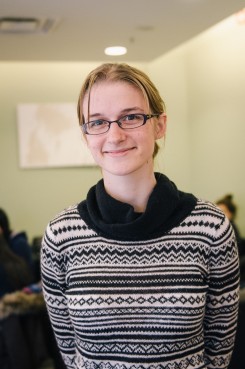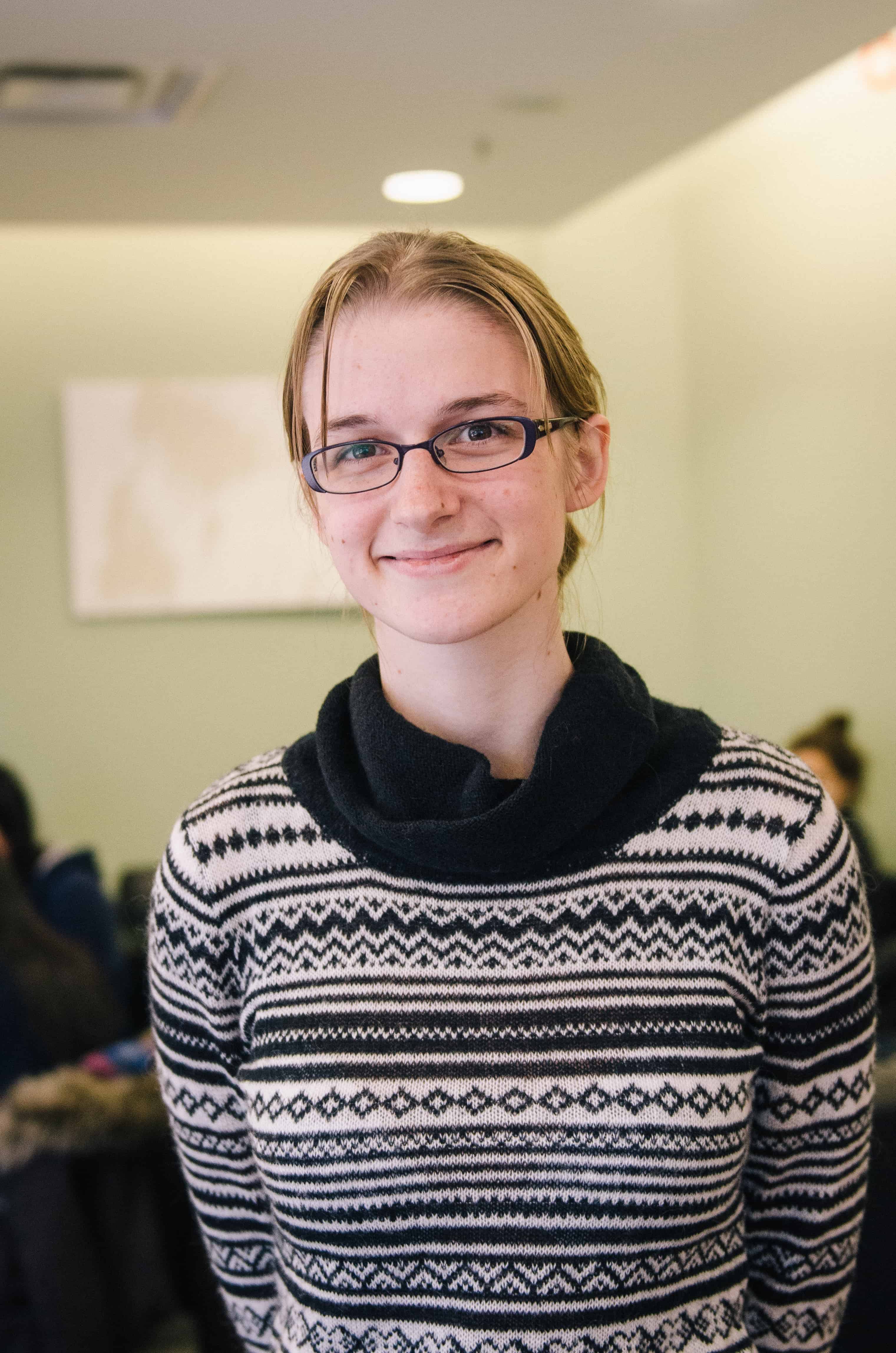With six dramatic societies on campus that stage up to three shows each a year, there’s a whole lot of drama on campus. Each show has a crew of at least five people, and a cast that, for a larger musical, can be upwards of 40 people. At the helm of these large teams is a student director. Like professional stage directors, a student director’s primary responsibility is having a vision for the artistic execution of the script. Essentially, he or she tries to create a cohesive narrative for a play. This narrative is enforced by the actors, who perform the script, and the designers, who create a set that supplements the director’s vision.

Robyn Hope. BERNARDA GOSPIC/THE VARSITY
This month, the Trinity College Dramatic Society (TCDS) put on a production of The Mousetrap, the famous Agatha Christie murder mystery. Directing the play was second-year film studies and english student Robyn Hope. I recently sat down with Hope at Reznikoff’s cafe, where she gave an account of her experience as the artistic visionary of the production.
Hope’s concept for The Mousetrap was a faithful adaptation in celebration of the play’s 60th anniversary. She pitched the play and her concept at the end of the last school year, and it was chosen by the TCDS executive. Although she admitted that pitching the play was a rather last-minute decision, Hope’s enthusiasm for her project was tangible.
Hope held auditions at the onset of the school year. “The audition process is always a really hard one,” Hope explained. “[Casting calls] always make me a little sad because people are so nervous.”
Of the roughly 30 people she auditioned, she called back 15 and went on to select eight for her production. As the play’s director, the casting process was entirely in her hands.
Once the casting selection was finalized, Hope and her cast moved into 10 hours of rehearsal a week for a month and a half, although Hope admits that the schedule could become considerably more grueling than that.
“At the very end of the process it gets a little insane,” she said. Contributing to the insanity was a 16-hour day for the cue-to-cue (a run-through of technical cues such as lighting and sound effects), a technical rehearsal, and two dress rehearsals in one day.
In spite of all the planning and rehearsal time that Hope poured into the production before opening night, she knew that the shape of a show does not lie entirely in the director’s hands. Yet Hope was happy to surrender some artistic control to the cast that she had so carefully selected. Using a metaphor from a different artistic medium, she explained her philosophy on her role within the production: “A director’s job is to set up the art gallery. I don’t get to decide how the paintings look. I get to decide an appropriate venue for them to do their art.”
When it came to Hope’s crew, the process was a little different. The TCDS assigned people for the business side of things, while Hope was, for the most part, able to choose her design team, consisting of everyone from lighting designers to makeup artists. As Hope soon discovered, designers are as integral to the team as actors, since they are often responsible for scaling back the director’s ideas to a stageable scale.
“You bring practical people in like designers and stage managers and they’re just like ‘You’re insane. That’s not going to work.’” Hope remembered.
I spoke to Hope near the end of her process, and it was apparent that she was ready for the show to go on. “It’s mentally hard. It takes so much planning,” she said. “It’s not something to be entered into lightly.”
Despite all the hard work that is involved with dramatic productions, campus theatre is a great venue for those who want to explore their artistic visions. Hope said that she is “literally asked questions every day” about her job by students looking to get involved in campus productions. As a campus director, Hope was also able to inform the artistic visions of the other students who were involved in the production; she was able to influence the direction in which the entire cast and crew took their work, and that is powerful in and of itself.
Near the end of our interview, Hope said, with a sort of half-sigh, “The actors get all the credit, then if something goes wrong it’s your fault.” Yet something in her upbeat demeanor and the breathy enthusiasm with which she speaks about her project tells me that this is exactly the role she wants to play.


